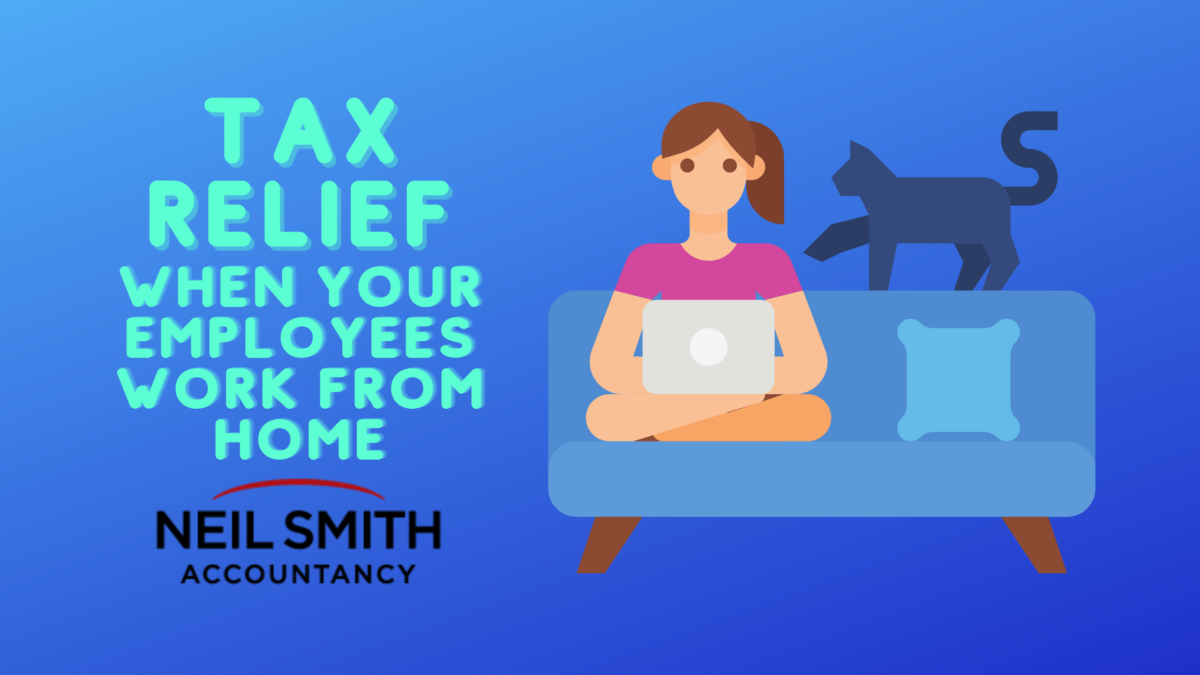With the Coronavirus pandemic necessitating social distancing in order to stem its spread, employees working remotely has become a reality for many large and small businesses. Workers in the UK have been advised by the government to work from home where possible. As a result, many people will find themselves with increased household expenses.
A member of staff may turn to their boss to help them with these additional costs. It’s important for both the employer and employee to understand the rules behind loans, reimbursing expenses, and providing equipment in terms of tax. There is no obligation to provide this financial assistance, however. If an employee is not reimbursed, they can claim tax relief via the government website.
On 26th March the government released guidance detailing tax information for various expenses. This applies to any employee who is working from home, whether they are isolating or because their workplace is closed. Employees on furlough eligible for the Coronavirus Job Retention Scheme do not qualify. Here we explain some key points from the Government’s guidance.
Mobile phones and SIM cards
When staff are remote working, mobile phones are useful for linking the team together, providing opportunities for video conferencing, etc. One mobile phone and SIM card provided per employee is non-taxable. No restriction is applied regarding private use.
Computers, laptops, tablets and office supplies
Computer equipment and office supplies are also non-taxable. In this case, items must be used primarily for business purposes, without significant personal use. Considering the importance of a computer in most job positions, this should not pose a concern
Reimbursement of computer equipment and office supplies
Alternatively, both parties may agree that the employee will purchase the equipment they need to do their job at home. The employer will then reimburse these costs. This includes furniture such as desks and other items. Once again, these payments are non-taxable, provided there is no significant private use.
If the employee pays for equipment and is not repaid, it is possible for them to claim tax relief on their tax return or P87. The amount claimed must be “incurred wholly, exclusively and necessarily in the performance of their duties of employment”. In other words, the equipment purchased must be for business use only. Employees need to keep records of their purchases and ensure the correct amount is claimed for. Eligibility for this will depend on the facts at the time, and the conditions that must be met are strict. For this reason, qualification is rare.
Broadband
Internet access is a basic requirement for working remotely; however if the employee has broadband already no claim can be made. If the employee has no internet connection at home, the fee for this can be reimbursed by the employer and is non-taxable.
Other utilities
From 6th April 2020, a payment or reimbursement to your employees of £6 per week will be non-taxable. Before this date, the allowance is £4 per week. This is to allow for additional spend on usual household utilities, such as gas, electricity and water. Costs like rent and council tax, which remain the same whether the employee is working from home or not, are not eligible. If an employee intends to claim for costs over this amount, they must first agree with you that you are willing to pay that amount. Receipts will be needed, so must be kept. No receipts are necessary for the £6 per week allowance.
Employer provided loans
During these universally difficult times, employees may be struggling financially, either because of increased costs or reduced working hours. Paying a salary advance or loan to provide financial support is classed as an employment related loan. These loans are non-taxable as long as the value is less than £10,000 in a tax year.
Significant private use explained
Many of the above considerations are dependent on the equipment, service or supply being for business, and not significant private use. HMRC accepts that there is no significant private use where
- a private use policy is clearly stated, for example in the contract of employment or a separate signed statement.
- The decision not to recover the costs of any private use is a commercial decision rather than a reward for the employee.
Significant private use should not be based on time spent, but rather on the duties of the member of staff and the necessity for that service or equipment to be supplied in order for them to properly do their job.
Reporting to HMRC
Non-taxable expenses do not need to be reported to HMRC.
For taxable expenses and benefits, any related to Coronavirus can be reported on a PAYE Settlement Agreement. In this way, tax and National Insurance contributions can be settled by the employer, where usually it would be the responsibility of the employee. If payrolling benefits in kind, continue to report expenses and benefits through payroll. P11D returns are also still acceptable for reporting expenses.
Tax can be a very confusing issue, which is why it’s often best left to a professional. Speak to the experts at Neil Smith Accountancy for first class accounting and small business advice. Whether you’re a new start up or an established organisation, we have the skills and expertise to help you make the most of your finances.


